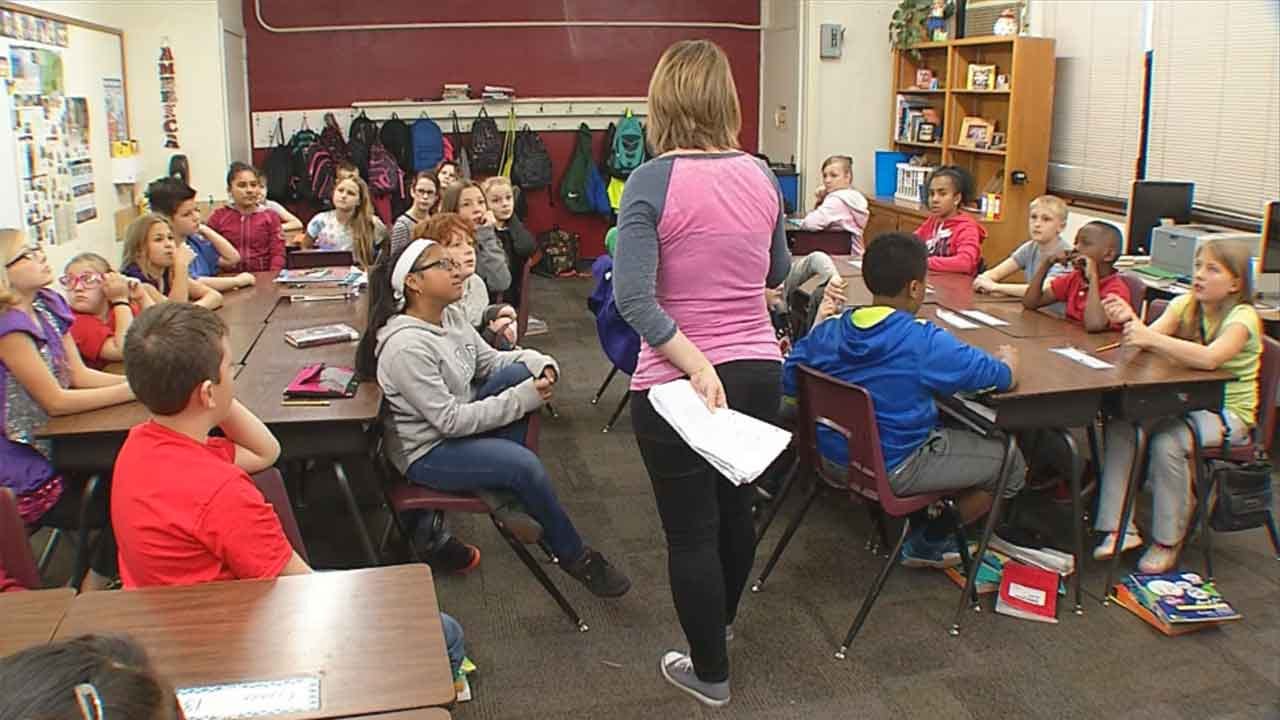9 Investigates: Oklahoma's Investment In Education
<p>No potential victim of Oklahoma's latest revenue failure has received more attention than common education. </p>Monday, April 11th 2016, 10:36 pm
No potential victim of Oklahoma's latest revenue failure has received more attention than common education.
In a state that already has among the lowest education outcomes in the country, there is understandable concern that local schools can ill afford to have their budgets slashed.
But even before this latest financial setback, Oklahoma students were at a funding disadvantage that is being felt right where it hurts, in the classroom.
Students are taught that you get what you pay for, whether it's textbooks, computers or teachers themselves. And right now, Oklahoma doesn't have a lot of buying power.
"We haven't seen anything this big at one time," Edmond Public Schools Superintendent Bret Towne said in a recent interview.
Towne was talking about what's expected to be $3.5 to $4 million cut in his district's state revenue for next year, large enough to force even a relatively wealthy district like Edmond to consider cutting teaching positions.
"I think there's a little bit of an inevitability about it," Towne said.
The governor and legislative leaders have promised to protect education from anything more than a 5 percent budget cut next year. But, even if they can do that, Oklahoma was already ranked fourth worst in the nation for per-pupil funding, and dead last in the region.
According to the National Center for Education Statistics, Kansas leads the region in per-pupil spending at $11,849. Arkansas is second at $11,164; followed by Missouri at $11,099; New Mexico at $10,556; Colorado at $10,007; and then Texas at $9,997. More than $1,000 behind Texas is Oklahoma at $8,631.
Click here to view per-pupil spending for all 50 states.
Just to catch Texas, Oklahoma would have to increase its education budget by more than $900 million.
"It's really disheartening, the idea that we are $900 million behind our nearest state in per pupil spending," said Shawn Hime, executive director of the Oklahoma State School Boards Association.
In his position, Hime has frequent contact with leaders of local school districts across the state and said he hears from one after another how this low funding translates to the classroom
"We have a deficit of materials, technology, other infrastructure," Hime stated.
Most significantly, Hime said, this is the root of the state's teacher shortage.
"We hear story after story about students going to Arkansas or Texas or the other states, because it's $10,000 or $15,000, or even more, for a first year teacher," Hime said,
Still, there are those who point out that, between common and higher education, Oklahoma is spending almost as much -- $3.6 billion -- as it ever has -- $3.8 billion. And, what's more, as a percent of total state spending, funding for common education is essentially at the same level -- 34.7% -- as it was just before the recession hit in 2008 -- 35.0%.
"But the per pupil spending has actually decreased," said Joy Hofmeister, Oklahoma's Superintendent of Public Instruction.
Hofmeister said this is because there are 50,000 more students now than in 2008, and state aid hasn't nearly kept pace. She says the state can't afford to fall even further behind, and she's urging lawmakers to keep that from happening.
"Oklahomans must really make a meaningful investment in education if we are going to dig out of the problems that we have," Hofmeister said.
Both Hofmeister and Hime said we will know we're on the right track when the teacher shortage starts to diminish.
According to a recent study by the State Regents for Higher Education, between 2010 and 2015, more educators in Oklahoma left the teaching profession than joined it. The state school board has approved a record 1,060 emergency teaching certificates for the 2015-2016 school year to date.
More Like This
April 11th, 2016
November 13th, 2024
October 28th, 2024
October 17th, 2024
Top Headlines
December 23rd, 2024
December 23rd, 2024
December 23rd, 2024
December 23rd, 2024









